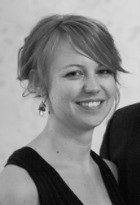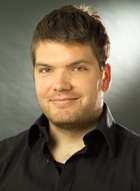Evidence integration mechanisms: Solving real quantum physics challenges in teams
Experimental Research in Social Science seminar series: Talk by Pinja Haikka & Carsten Bergenholtz
Info about event
Time
Location
IMC Meeting Room, Jens Chr. Skous Vej 4, Building 1483-312, 8000 Aarhus C
Organizer


Abstract
We present results from an innovative online experiment on collective human problem solving in real quantum-physics experiment. Grouped in teams, solvers were given remote access to an Aarhus University lab and, via a game interface challenged to contribute solutions for the cooling down of a cloud of atoms. In our analysis we not merely focus on the extent of copying (or not) existing solutions, but how much a player adapts already existing solutions. We found evidence for sophisticated social learning mechanisms, where players engaging in social learning did not blindly imitate their peers, but selectively integrate parts of their solutions. In particular, the distance from a copied to the adapted, submitted solution, is significantly positively correlated with an individual's own previous performance. We further explore how players recombine their own solutions with those solutions they used as inspiration.
The seminar series Experimental Research in Social Science hosts speakers who apply experimental methods to study questions relevant to economics, management, or social sciences more generally. The format is a one hour seminar aimed at a broad, interdisciplinary audience, followed by time for informal discussion over a sandwich lunch.
The series is hosted by IMC, the Department of Economics and Business Economics, and the Department of Management. Typically, the speaker will also be available for individual meetings before/after the talk which can be arranged (contact: Mette Trier Damgaard mdamgaard@econ.au.dk).
Organisers:
Alexander Koch (ECON), Carsten Bergenholtz (MGMT) and Andreas Roepstorff (IMC)
